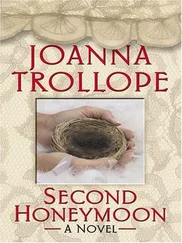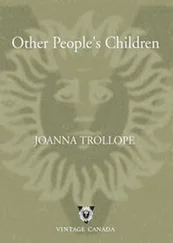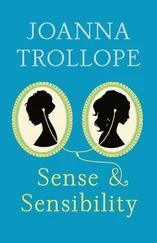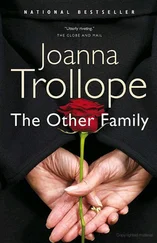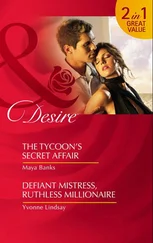Joanna Trollope - A Village Affair
Здесь есть возможность читать онлайн «Joanna Trollope - A Village Affair» весь текст электронной книги совершенно бесплатно (целиком полную версию без сокращений). В некоторых случаях можно слушать аудио, скачать через торрент в формате fb2 и присутствует краткое содержание. Жанр: Современные любовные романы, на английском языке. Описание произведения, (предисловие) а так же отзывы посетителей доступны на портале библиотеки ЛибКат.
- Название:A Village Affair
- Автор:
- Жанр:
- Год:неизвестен
- ISBN:нет данных
- Рейтинг книги:3 / 5. Голосов: 1
-
Избранное:Добавить в избранное
- Отзывы:
-
Ваша оценка:
- 60
- 1
- 2
- 3
- 4
- 5
A Village Affair: краткое содержание, описание и аннотация
Предлагаем к чтению аннотацию, описание, краткое содержание или предисловие (зависит от того, что написал сам автор книги «A Village Affair»). Если вы не нашли необходимую информацию о книге — напишите в комментариях, мы постараемся отыскать её.
A Village Affair — читать онлайн бесплатно полную книгу (весь текст) целиком
Ниже представлен текст книги, разбитый по страницам. Система сохранения места последней прочитанной страницы, позволяет с удобством читать онлайн бесплатно книгу «A Village Affair», без необходимости каждый раз заново искать на чём Вы остановились. Поставьте закладку, и сможете в любой момент перейти на страницу, на которой закончили чтение.
Интервал:
Закладка:
When she discovered she was pregnant with Charlie, her first reaction was relief. She felt a great gratitude towards this unexpected baby for mapping out her life for her again and threatening her with its needs. Martin seemed extremely pleased except for taking out, with immense ostentation, an insurance policy against school fees which he appeared to regard, Alice felt, as something he was nobly doing for her.
'Ignore him,' Juliet said, 'just fade him out. It's the only way to survive living with a man.'
'But the baby isn't just mine!'
'You try telling any father that. Henry will acknowledge William and Simon when they are captaining the first eleven, and strictly not before. If you wanted anything else, you shouldn't have married an Englishman.'
'No one else offered.'
'Allie,' Juliet said, 'just get on with this baby, would you? You'll make a much better job of it than Martin in any case. I despair of myself but I think I envy you.'
Charlie was born, suddenly, a month early, and Alice went into a deep, deep decline. Sunk in the fogs of a profound depression, she was carried off to Dummeridge with the baby where she remained for a month, struggling inch by inch out of the depths into which she had tumbled. Pills, frequent small meals, sleep, confiding conversation and gentle exercise were prescribed as her regime. Martin, thankful to surrender this dismal conundrum to his mother, telephoned nightly for bulletins and was spoiled tenderly by Alice's friends who pitied his male dilemma in the kitchen.
She came home pale and thin and slightly sad, but she was better. Martin was very sweet to her but at the same time anxious she should know that he had suffered too, alone at night with the two elder children and responsible for the morning whirlwind of rejected eggs and lost gumboots. The week Alice returned, Cecily wrote privately to Martin, to the office in Salisbury, and said she thought Alice needed both a change and more support. She suggested a house move and offered to pay for help and for a holiday, a holiday without any of the children, the moment Charlie was weaned. And then the gods produced The Grey House, out of casual conversation at a dinner party, and presented it to the Jordans on a plate. It was not just the house they offered, but village life, the chance and the need to be part of a proper community, where you couldn't even go to buy stamps, Alice thought excitedly, without meeting several people you knew. There would be a church fete, and a flower rota, and a list for driving old people into Salisbury, or to the hospital, and men from the Park would bring loads of logs in winter, and a Christmas tree, and in the summer she would pityingly watch the neat tourists emerge from the parked Toyotas and peer hopefully - but fruitlessly - down the pretty, sloping street for a tea shop. She would, she knew it, envy no one, long for nothing. In Pitcombe she would feel again what she had felt at Dummeridge ten years ago when she was twenty-one - she would feel she had come home.
CHAPTER FOUR
'Now the county travelling library,' said Miss Pimm with the separating articulateness of Marghanita Laski, 'is a great blessing.'
'Tuesdays, did you say?' Alice said, obediently writing it down on her list.
'Tuesday afternoons. Three to three-thirty. The librarian is an excellent vegetable gardener and to be relied upon for brassicas.'
'Brassicas', wrote Alice.
James, leaning against Alice, thought, with wonder, that they were discussing underclothes. He had his finger up his nose. He pulled it out and offered it to Miss Pimm.
'Gucky,' he said.
She averted her gaze.
'Mrs Leigh-Brent runs the church deaning rota. And Miss Payne is in charge of the flowers. I know Mrs Macaulay would gratefully welcome help on Mondays with the community shop and of course Mr and Mrs Fanshawe will be happy to register you with the local Conservative branch.'
Alice wiped James's nose hard enough with a piece of paper kitchen towel to make him whimper.
'Don't be a disgusting little boy. I don't think I really am a Conservative, but my husband-'
'Not?' said Miss Pimm, swivelling her gaze back.
'No,' Alice said staunchly, remembering Sir Ralph, 'I believe the Park-'
That,' said Miss Pimm, 'is quite different.'
She looked round the kitchen. It looked rather Joud to her, though considerably cleaner than in Major MurrayFrench's day. But she did not like being entertained in kitchens, even the kitchens of people newly moved in who might perhaps be forgiven for having nowhere else. When Miss Pimm had brought her mother to Sycamore Cottage fifteen years before, the first thing she had done was to make the sitting room respectable for callers. She remembered standing on a chair hammering in nails for the 'Cries of London' above the fireplace, the position they had occupied in all the houses of her life.
Natasha came in through the door to the hall carrying a doll dressed like a teenage fairy, and wearing an expression of faint disgust.
'Charlie's crying and he's pooey,' she said.
Alice stood up.
'Would you forgive me, Miss Pimm?' she said, 'I must just see to the baby.'
Miss Pimm sat on. There was much information yet to impart. She inclined her head.
'I am in no hurry.'
Alice left the room. Natasha came up to the kitchen table and put her gauzy doll down. She looked at Miss Pimm who seemed to have nothing about her that Natasha could admire. The texture of her stockings reminded Natasha of drinking chocolate powder.
'Pretty doll,' said Miss Pimm with extra elaborate articulation, as if speaking to a half-wit.
'She's called Princess Power,' Natasha said. Her voice was proud. 'She's got net petticoats, pink ones.'
She turned the doll upside down to demonstrate and Miss Pimm looked hastily away.
'But,' said James slowly and earnestly, from across the table, 'she hasn't got a willy.'
Panic blotched Miss Pimm's neck with purple patches.
'Have you?' said James.
Natasha hissed at him.
'Shut up.'
'Charlie's,' said James with real sympathy, 'is only little. But it'll probably grow.'
'I'm afraid,' said Natasha to Miss Pimm, 'that in James's class at school they talk about willies all the time. But you must just ignore him. Like Mummy does.'
'School!' cried Miss Pimm on a high note of relief. 'And do you like your school?'
'No,' said James. 'I hate everything except being at home.'
'He cries every morning,' Natasha said. 'It's so embarrassing. My best friend is called Sophie and she has Princess Power too only her petticoats are yellow. I like pink best.'
'Yes!' cried Miss Pimm. 'Yes! Pink!'
Alice came back into the room holding a large baby. Miss Pimm was afraid of babies. Alice sat down and picked up her pencil again, wedging Charlie into the space between her and the table.
'So sorry about that,' Alice said. 'Now, what else was there?'
Miss Pimm wanted to say that a cup of tea was one of the things. It was five past four. She would have liked a cup of tea and a Marie biscuit. She cleared her throat with meaningful thirstiness and said, 'Well, there is our little Sunday group.'
Charlie seized Alice's pencil and drew a thick, wild line across her list. Instinctively Miss Pimm's hand shot out to prevent the desecration of neatness, but Alice didn't seem to notice.
'Group of what?'
'Why, children.' She looked at Natasha and stretched her mouth into an attempted smile. 'We meet in the church room for songs and stories about Jesus.'
'I know about him,' Natasha said. 'He gave some people a horrible picnic with bare bread and fish that wasn't cooked. And then he walked about all over a lake and made a girl who was dead be alive again. If you ask me,' Natasha said darkly, 'I don't believe that bit.'
Читать дальшеИнтервал:
Закладка:
Похожие книги на «A Village Affair»
Представляем Вашему вниманию похожие книги на «A Village Affair» списком для выбора. Мы отобрали схожую по названию и смыслу литературу в надежде предоставить читателям больше вариантов отыскать новые, интересные, ещё непрочитанные произведения.
Обсуждение, отзывы о книге «A Village Affair» и просто собственные мнения читателей. Оставьте ваши комментарии, напишите, что Вы думаете о произведении, его смысле или главных героях. Укажите что конкретно понравилось, а что нет, и почему Вы так считаете.

